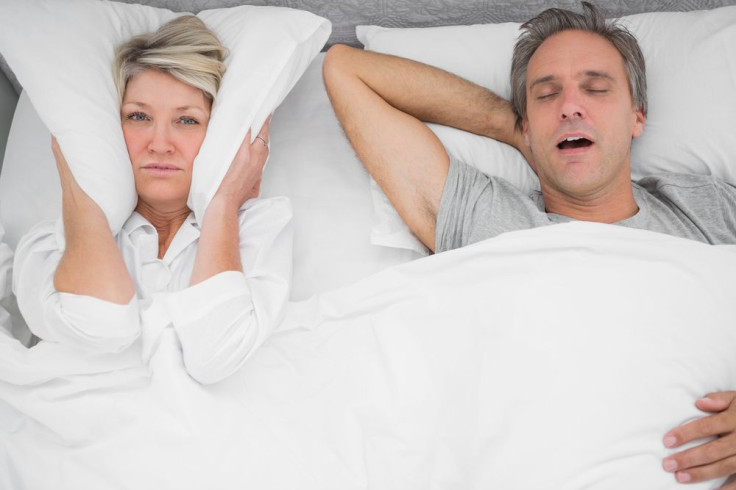Sleep Apnea Linked To Hearing Loss, Another Danger

Scientists are starting to grasp the extent to which our health depends on the length and quality of rest we give our bodies. When a person’s quality of sleep is put in jeopardy, a list of medical complications can develop throughout a person’s life, affecting their health, risk of diabetes, and even hearing loss. The research, which was published at the American Thoracic Society’s 2014 International Conference, revealed the patients who reported having sleep apnea also had trouble hearing.
"In our population-based study of 13,967 subjects from the Hispanic Community Health Study/Study of Latinos, we found that sleep apnea was independently associated with hearing impairment at both high and low frequencies after adjustment for other possible causes of hearing loss," said Dr. Amit Chopra, lead author of the Albany Medical Center in New York.
Ten percent of their study population had sleep apnea, who tested positive for a 31 percent increased risk of high-frequency hearing impairment, 90 percent increased risk of low frequency hearing impairment, and 38 percent increased risk of a combination of the two.
Sleep typically takes up about a third of every day, which means an average person who lives to be 90 years old, will spend over 30 years of it asleep. A lot could go wrong in those 30 years spent asleep, and sleep apnea stands to be one of the most threatening ones.
There are approximately 20 million Americans who are undiagnosed with obstructive sleep apnea (OSA), one of the most common and detrimental sleep disorders today. People who have OSA stop breathing in their sleep five to 50 or more times every hour due to a collapse of soft tissue in the airway of their throat. OSA can be caused by a decrease of muscle tone in the neck, extra flesh in the airway, a large tongue, or in over 50 percent of the cases is attributable to excess weight.
OSA, one of the most common of sleep issues and occurs in 50 percent of obese individuals, according to the American Academy of Sleep. An apnea is a 90 percent reduction of airflow caused by the collapse of soft tissue in the back of the throat, which consequently blocks the airway and and can last from a few seconds to minutes each time. The body struggles to push against the closed airway until the person comes out of deep sleep and into light enough sleep to regain muscle tone to reopen the airway. This can occur as often as 50 to 100 times per hour, which is a cycle of constant unconscious re-awakening throughout the night.
Doctors assess the severity of an individual’s apnea and recommend treatments by calculating what is called the apnea-hypopnea index, or AHI, a diagnostic standard created by the American Academy of Sleep Medicine. An apnea is defined as a complete pause in breathing from at least 10 seconds; hypopnea is a stoppage of that length in which there is at least a 30 percent reduction of airflow. The index is the hourly average number of total events, of either kind, during a night’s sleep.Ten seconds may not seem long enough to cause bodily harm, but when repeated multiple times throughout the night, every night, it has been shown to be associated with increased risk of high blood pressure, cardiac problems, increased insulin resistance and stroke.
The frequency and severity of sleep apnea can vary tremendously from patient to patient. Five to fifteen events per hour are considered mild; 15 to 30 are moderate; and more than 30 are severe. Insurance companies use the index to determine their coverage of treatments.
Researchers at the conference also reported finding a link to respiratory failure and sleep apnea because a majority of the patients reported needing mechanical ventilation for at least 48 hours.
Manufacturers of sleep-disorder diagnostic and therapy products have also profited from the growth, with treatments such as the continuous positive airway pressure (CPAP) mask that uses air pressure to keep airways open throughout the night. Manufacturers had combined revenue of $1.3 billion last year for in the United States, according to international market research firm InMedica.
"The mechanisms underlying this relationship merit further exploration," Chopra said in a statement. " Potential pathways linking sleep apnea and hearing impairment may include adverse effects of sleep apnea on vascular supply to the cochlea [part of the inner ear] via inflammation and vascular remodeling or noise trauma from snoring."



























